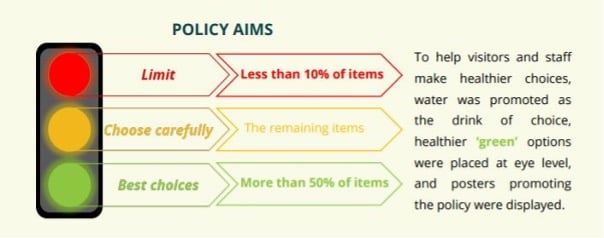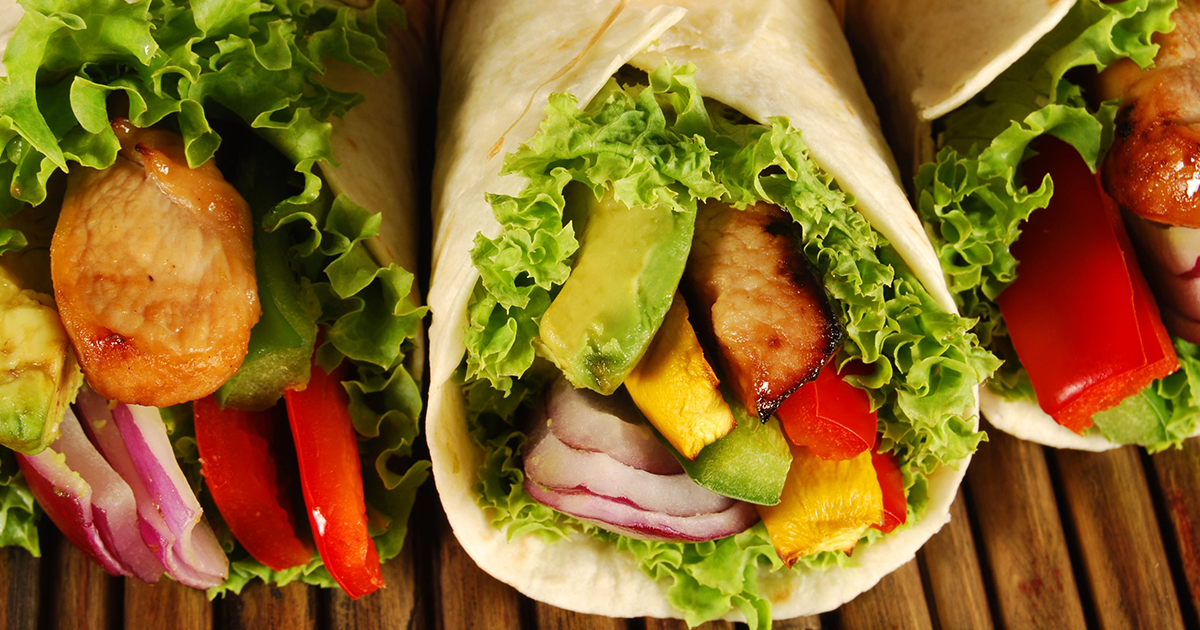Key facts
- Implementing healthier food options in recreation centre canteens and cafes is good for community health, according to a new collaborative study.
- The research partnership between Deakin University and YMCA Victoria assessed the Healthy Food and Beverage Policy and found that implementing healthier menus doesn’t have to negatively impact cafe and canteen revenue.
- The study serves as a blueprint for other community facilities to improve their food offerings.
A research partnership between Deakin University and YMCA Victoria has unveiled promising results regarding the effectiveness of healthy food and drink policies in recreation centres.
The study, funded by The Australian Prevention Partnership Centre, and the Centre of Research Excellence in Food Retail Environments for Health (RE-FRESH), and led by the Global Centre for Preventive Health and Nutrition (GLOBE), Institute for Health Transformation (IHT), found that promoting healthier food and beverage choices and limiting unhealthy offerings positively influenced customers and staff to make improved food choices while maintaining revenue from food.
The first-of-its-kind study analysed six years of sales data from YMCA Victoria, which manages a significant number of aquatic and recreation facilities across the state. The research specifically focused on analysing the effects of implementing a Healthy Food and Beverage Policy in cafes and canteens within YMCA centres.
Using the ‘traffic light’ approach to guide food and drink choices
The YMCA Healthy Food and Beverage Policy classified all available food and drinks into three categories: ‘red’, ‘amber’, and ‘green’ based on their ingredients and nutritional information, using the Victorian Government's ‘Healthy choices: food and drink classification guide’.
The policy guidelines consisted of more than 50% of food options being ‘green’ and limited ‘red’ choices to just 10% of items, with ‘amber’ options making up the rest.
To help visitors and staff make healthier choices, the YMCA cafes and canteens promoted water as the drink of choice, healthier ‘green’ options were placed at eye level and information about their healthy food policy was displayed.

The research team, led by Dr Shaan Naughton and Dr Helena Romaniuk, evaluated monthly sales data from 13 recreation centres between January 2013 and December 2018, assessing customers’ purchasing patterns of ‘red’, ‘amber’ and ‘green’ foods and drinks.
The findings of the study were encouraging, demonstrating positive outcomes resulting from the policy implementation.
Notably, there was a significant reduction in the volume of ‘red’ drinks sold, amounting to a 37% decrease. Conversely, the volume of 'green' drinks sold increased by 28%. Furthermore, the introduction of the policy led to a 2% reduction in sugar content in drinks and a 5% decrease in sugar content in foods.
The study also observed a reduction in the volume of ‘red’ foods sold, with a notable 15% drop. Additionally, both food and drinks exhibited decreased energy density, indicating a shift towards healthier options, with notable decreases of 1.4kJ/g and 0.32kJ/g, respectively.


Removing junk food does not impact bottom line
Dr Naughton said the results provide tangible evidence of the effectiveness of such policies in improving the healthiness of customer purchases without negatively impacting businesses’ financial sustainability.
‘One key and promising finding was the implementation of the healthy food and drink policy did not result in a decline in total revenue from food sales,’ she says.
‘Despite the changes in product offerings and the focus on healthier options, revenue from food remained stable throughout the six-year study period. This discovery brings positive implications for policymakers who might consider implementing similar comprehensive and community-based healthy food and drink policies.
‘Our research contributes to a growing body of evidence that supports the impact of healthy food policies in combating issues related to excessive sugar consumption and unhealthy dietary habits.
‘Policy makers, public health professionals and recreation centre managers can draw inspiration from this study, recognising the positive health outcomes that can be achieved. By implementing similar policies, communities can take a crucial step toward fostering healthier eating behaviours and creating environments that support individuals in making informed choices about their nutrition,’ Dr Naughton says.
Reflecting on the research in 2024, the Y’s Chief Operations Officer Greg Jennings says: ‘Our Healthy Food and Beverage Policy has demonstrated how we've successfully integrated public health priorities into real-world operations without compromising financial sustainability. Our successful implementation of this policy in Victoria has shown that a commitment to healthier menu options, across all service lines at the Y, can lead to positive dietary choices for children, families, and the community at large.’
Building on the success of YMCA Victoria's policy, similar measures implemented on a larger scale have the potential to make a significant and lasting impact on public health and wellbeing.
Policy makers, public health professionals and recreation centre managers can draw inspiration from this study, recognising the positive health outcomes that can be achieved.
Dr Shaan Naughton
Implementing a healthy menu comes with challenges – but it’s worth it
The research team did acknowledge that implementing healthier, fresher menus could pose a challenge for some smaller operations.
‘The ‘green’ classification contains predominately freshly prepared or unprepared foods and some smaller centres were challenged by this, having a combination of slower stock turnover due to attendance rates and limited preparation facilities, potentially restricted the ability of centres to prepare, store, and turnover ‘green’ foods without significant waste,’ Dr Naughton acknowledges.
‘Centres with limited food preparation ability needed to rely on packaged and preprepared items, which may be limited to the range that is available through local suppliers ̶ issues which have been found in previous research.’
Former YMCA Health Promotion Manager, Alethea Jerebine, says one of the biggest challenges YMCA centres had faced in transitioning to healthier menus was sourcing healthier food and drinks.
‘Because many of the Y’s canteens didn’t have commercial kitchens, we relied upon preprepared and packaged options. Solving the healthier food procurement challenge is going to be key to the sustainability of the Y’s policy and wider efforts to transition to healthier food environments.’
Additionally, Ms Jerebine emphasised the significant opportunity to positively impact Australians food choices.
‘With over 12 million annual visits to YMCA facilities, the opportunity to positively influence the food choices and eating behaviours of children and families through improved food and drink offerings is substantial,’ she says.
The full results of this study can be found here, and an infographic summary here.
Creative Commons Statement:
The text of this article is licensed under the Creative Commons Attribution (CC BY) 4.0 International license. We'd love for you to share it, so feel free! Please note that images, videos, graphics and logos are not covered by the CC BY license and may not be used without permission from Deakin University or their respective copyright holder. If you have any questions please contact researchcomms@deakin.edu.au.
Thanks for reading! You can find more stories like this at www.deakin.edu.au/research/research-strengths/designing-smarter-technologies We ask that Deakin University and individuals are appropriately credited and that you include links back to this website. Quotes in this article can be extracted for other articles provided individuals are appropriately credited and you include a link back to the article URL.
Contact us
For more information about our research impact contact Deakin Research.
